Oil price posts two-year highs - but how long can it last?
Brent rose above $59 a barrel this week, its best third-quarter showing since 2004

A free daily email with the biggest news stories of the day – and the best features from TheWeek.com
You are now subscribed
Your newsletter sign-up was successful
Oil price hopes could be 'dead in the water'
10 May
Traders' hopes for a deal to cut supplies or any other development that would push the oil price substantially higher are effectively "dead in the water", reports The Times.
The paper is basing its judgement on Saudi Arabia's unceremonious replacement of its 20-year veteran oil minister Ali al-Naimi at the weekend. His successor, Khalid al-Falih, the chairman of state-owned oil company Saudi Aramco, is known to be a "strong supporter of King Salman and his influential son Prince Mohammad bin Salman".
The Week
Escape your echo chamber. Get the facts behind the news, plus analysis from multiple perspectives.

Sign up for The Week's Free Newsletters
From our morning news briefing to a weekly Good News Newsletter, get the best of The Week delivered directly to your inbox.
From our morning news briefing to a weekly Good News Newsletter, get the best of The Week delivered directly to your inbox.
Prince Salman is a trenchant reformer who last month declared he would continue the kingdom's strategy of prioritising oil market share over price, stating: "$30 or $70 [is] all the same to us… This battle is not my battle." He is thought to have been the main reason for the collapse of a tentative agreement to freeze global supply, which had boosted prices by as much as 70 per cent.
This political development has been overshadowed by the wildfires in Canada ravaging the key oil sands area around Fort McMurray. With Reuters claiming as much as 1.6 million barrels a day of production have been affected, international benchmark Brent crude jumped to a 2016 high of $49 a barrel on Friday and took early gains in London yesterday.
But even the potentially rebalancing effect of this hit to production, which, along with other outages elsewhere this year, has "temporarily wiped out a glut that emerged in mid-2014", may have proved to be short-lived.
Brent dipped back into the red by the close of London trading yesterday and shed four per cent to near to $43.50 a barrel in New York following an optimistic report by Canadian officials on the likelihood of production returning soon.
A free daily email with the biggest news stories of the day – and the best features from TheWeek.com
Add this to brimming storage in the US that is expected to set another new record this week, massive stockpiles elsewhere and a huge supply of refined products that is outstripping demand and you begin to see a bearish price picture emerging. The renewed intractability of the Saudi position only furthers this view.
That is not to say observers expect another fall back any time soon, merely that they anticipate volatility and that current low price levels will ultimately persist for a while yet.
"Some traders said a $40-$50 per barrel price range may reflect a balanced market with plentiful stocks," notes Reuters.
Oil price rises despite 'deeper politicisation' of Saudi production
09 May
The oil price has defied predictions and started the week on the front foot, after strong Chinese data and a supply hit in Canada helped support positive sentiment.
A fire near Canada's main oil hub has been raging since last week. Official reports indicate it has cut off "at least" 645,000 barrels of production a day, or 25 per cent of the country's overall output, says the Wall Street Journal. CNBC says the actual figure could be in excess of one million barrels, or more than a third of production.
With the market being driven by long-running oversupply concerns, this is seen as positive by traders. International benchmark Brent crude rose more than one per cent on Monday morning in London and was closing in on $46 a barrel, although this is still down on Friday's 2016 high of almost $49.
Another factor driving the increase this morning was trade data out of China, which indicated a rise in demand that could also help rebalance the market. Chinese crude imports rose 7.6 per cent year-on-year last month, while "in the first four months of the year, China imported 123.67 million tons of crude, equivalent to a 12 per cent on-year rise," notes the WSJ.
Some analysts had expected that oil prices might fall this morning, after Saudi Arabia's long-standing oil minister, Ali al-Naimi, was ousted on Saturday and replaced with Khalid al-Falih, the chairman of state-owned oil company Saudi Aramco.
Observers stated that the departure of the widely respected al-Naimi indicated the extent to which Deputy Crown Prince Mohammed bin Salman is the person really driving energy policy. This in turn suggests "a deeper politicisation of oil-production strategy as the kingdom looks to neutralize its rival Iran".
Last month, a meeting in Doha, Qatar aimed at agreeing a freeze in supplies ended in failure after Saudi Arabia, the traditional "swing producer" on the global oil market, pulled out at the last minute, citing the refusal of Iran to stop increasing its own output until it has returned to pre-international sanctions export levels.
Oil price falls as investors cash in on recovery
06 May
Oil prices fell today as investors cashed in on the recovery the commodity has enjoyed since hitting a 13-year low in mid-February.
Brent crude futures were down 48 cents at $44.53 a barrel at 1.34pm UK time while West Texas Intermediate in the US had fallen 42 cents to $43.90 a barrel.
News of a huge wildfire in Canada, which has partially halted production in Alberta's oil sands area, and of political tensions interrupting the industry in Libya led to a rise in prices yesterday morning and might have been expected to do so today.
Prices have spiralled down over the past two years because of a global oversupply of oil. News of reduced production would therefore be expected to lift the market.
However, with the price up 20 per cent in the past month, investors have decided now is the moment to sell, says Reuters, hence today's drop.
Frank Klumpp, an analyst at Landesbank Baden-Wuerttemberg, said investors seemed to be ignoring the "good" news.
"Currently, prices are falling even with only few bearish fundamentals," he said. "It seems that investors take profits regardless of the news flow, which should be supportive."
A stronger dollar has also pushed prices down - because oil is priced in dollars, when the value of the greenback rises, the commodity seems a less attractive investment to non-US buyers, who will get less bang for their buck.
Some analysts are interpreting today's falls as a "shift in sentiment", says MarketWatch, which quotes analysts at Commerzbank as saying: "The failure of the oil price to react [to the news] could be interpreted as a sign of sense.
"This marks a shift in sentiment on the oil market which could also weigh further on prices in the near future."
Traders are also looking with interest at a survey of economists by the Wall Street Journal which estimates that 250,000 new jobs were added in the US in April.
Jobs growth is a key factor for the Federal Reserve when it sets interest rates. Higher interest rates push up the value of the dollar, which in turn brings down the price of oil.
Oil prices boosted by Canadian wildfire and Libyan unrest
06 May
The price of crude oil rose today for the first time in a week, as a huge wildfire in Canada and escalating tensions in Libya promised to reduce the global supply of the commodity.
At 9.45am UK time, Brent crude was at $45.81 a barrel, up $1.19 from their opening price, while in the US, West Texas Intermediate (WTI) had risen $1.45 to reach $45.23 a barrel.
Oil has rallied by some 70 per cent from a 13-year low in mid-February but is still worth a fraction of its value two years ago. The recovery stalled earlier this week, after the price of Brent hit a 2016 high of $48.50 on Friday.
Today's jump is thanks in part to a huge wildfire in Canada, which has led to the evacuation of 88,000 people from their homes in Fort McMurray, in the centre of the country's oil sands region.
Some pipelines have been shut down as a precaution and several companies have reduced production while their employees seek safety. Much of the town could be destroyed - around 1,600 buildings have already been burned.
Oil prices have been kept low by a huge global oversupply of the commodity and the news from Canada promises a reduction in stockpiles. The global supply will also be reduced by an escalating political stand-off in Libya, says Reuters.
The fact that the market appears to be responding to this news is itself a sign of recovery, says Olivier Jakob of PetroMatrix: "The market is becoming much more sensitive to supply disruptions.
"The difference today compared with a year ago is the market is starting to price in supply disruptions, whereas in a market that is totally oversupplied, you don't care about losing half a million barrels a day," he added.
The long slide in prices has dented profits at the big oil companies, but some are weathering the storm better than expected, says Bloomberg, and are discovering new affection for an "unloved corner" of their business.
"Big Oil is suddenly Big Chemical," says the news agency. The business of turning crude oil into products ranging from petrol to plastic bags is cushioning giants such as Exxon Mobil and Royal Dutch Shell from the worst price slump in ten years.
The petrochemical industry even enjoys a "lift" from lower oil prices. "Effectively, cheap energy translates into cheap raw materials and higher margins," says Bloomberg.
Oil price steadies as Canadian wildfire limits production
04 May
Oil prices held steady today as a drop in production caused by a wildfire in Canada countered worries of increased production by Opec and rising US stockpiles.
At 10.08am UK time, Brent crude was unchanged at $44.97 a barrel, while WTI futures in the US were down 11 cents to $43.54 a barrel.
A huge global oversupply of oil saw prices spiral down to a 13-year-low in February, before recovering somewhat in the last few weeks to hit a high for 2016 of $48.50 a barrel for Brent crude on Friday.
The news that production is rising in the Opec nations, that the economic slowdown in the US and Asia is worsening and that the dollar is recovering value have led Brent to drop seven per cent since then, says Reuters.
A report yesterday which revealed that US stockpiles will soon rise even further - they are already at a record high - would have pushed the price lower still if it had not been for a massive wildfire in the Canadian province of Alberta.
The blaze led to the evacuation of 60,000 people from Fort McMurray in the country's oil sands region. Suncor Energy, whose operations are close to the city, said it was cutting production to allow employees and families to leave for safety, Reuters reports.
Meanwhile, the head of Shell has said he will speed up cost-cutting measures after reporting a drop in earnings of nearly 60 per cent. The oil giant recently took over rival BG Group and will make savings as a result.
Ben van Beurden was speaking as Shell announced it had made $1.6bn (£1.1bn) in earnings in the first quarter on a current cost of supplies basis, excluding identified items, says the Financial Times, significantly above the $1bn widely expected.
Like other oil firms, Shell's earnings have been slashed by the falling cost of oil globally but it has managed to claw back profit from its refining, trading and retail activities.
-
 Crisis in Cuba: a ‘golden opportunity’ for Washington?
Crisis in Cuba: a ‘golden opportunity’ for Washington?Talking Point The Trump administration is applying the pressure, and with Latin America swinging to the right, Havana is becoming more ‘politically isolated’
-
 5 thoroughly redacted cartoons about Pam Bondi protecting predators
5 thoroughly redacted cartoons about Pam Bondi protecting predatorsCartoons Artists take on the real victim, types of protection, and more
-
 Palestine Action and the trouble with defining terrorism
Palestine Action and the trouble with defining terrorismIn the Spotlight The issues with proscribing the group ‘became apparent as soon as the police began putting it into practice’
-
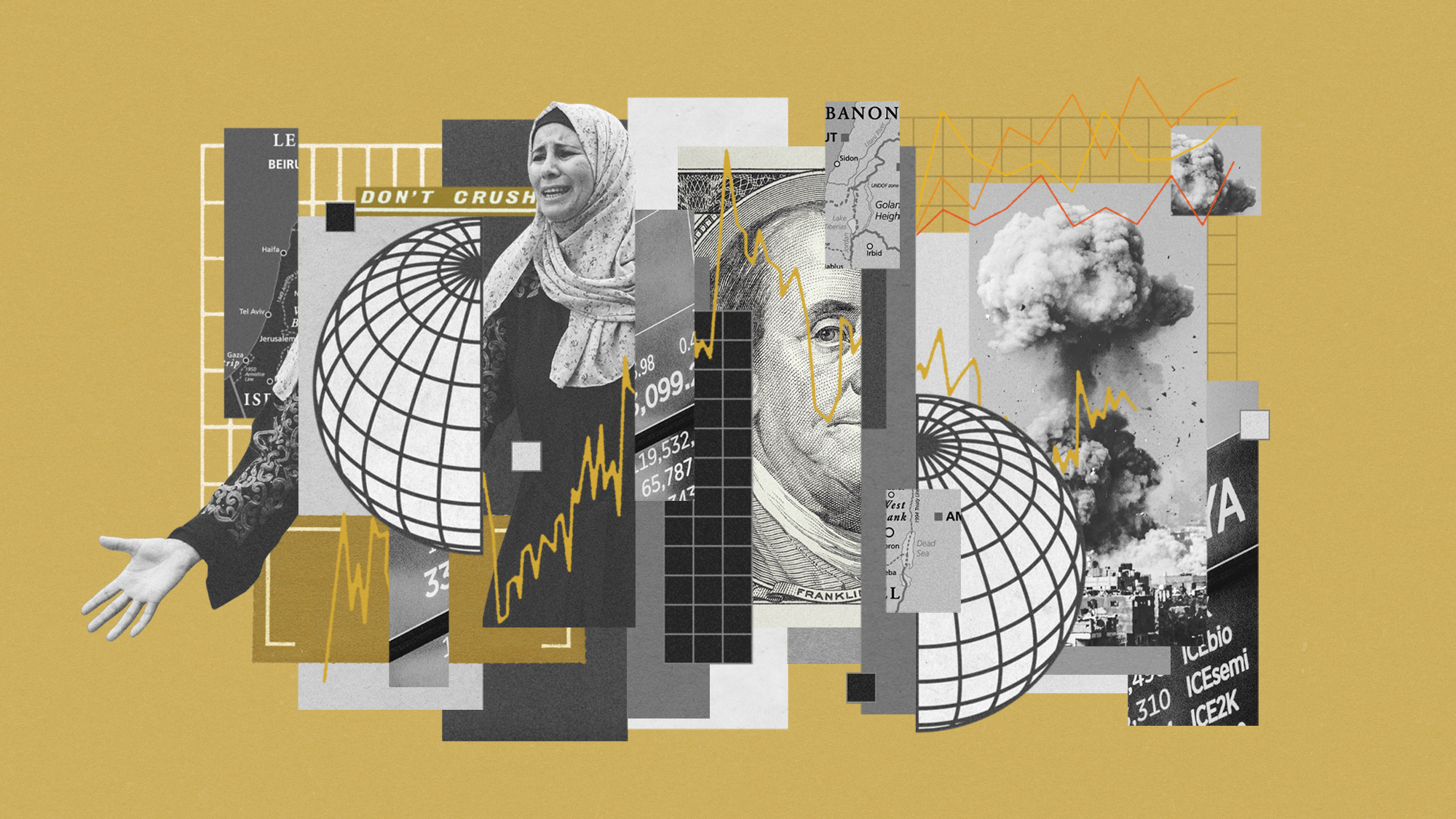 How might the Israel-Hamas war affect the global economy?
How might the Israel-Hamas war affect the global economy?Today's Big Question Regional escalation could send oil prices and inflation sky-high, sparking a worldwide recession
-
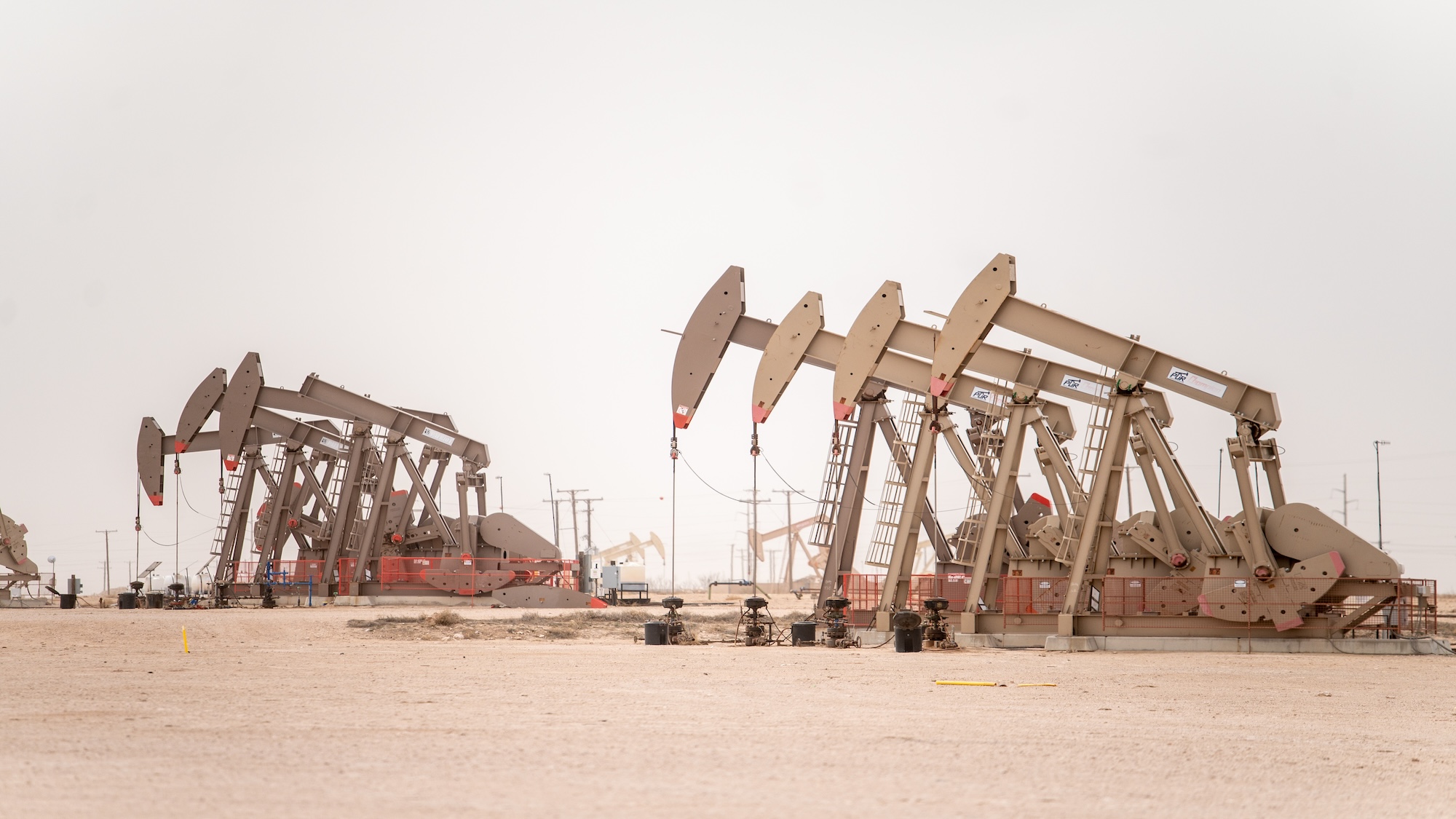 Recent mega-mergers could signal a turning point for the US oil industry
Recent mega-mergers could signal a turning point for the US oil industryTalking Point Both Chevron and Exxon have recently spent billions to acquire smaller oil companies
-
 Has Saudi Arabia lost control of oil prices?
Has Saudi Arabia lost control of oil prices?Today's Big Question Kingdom goes it alone to cut production, risking tension with US and reigniting cooling inflation in Europe
-
 US angered by Opec+ oil cut
US angered by Opec+ oil cutSpeed Read Energy prices to rise further as producers slash supply by two million barrels a day
-
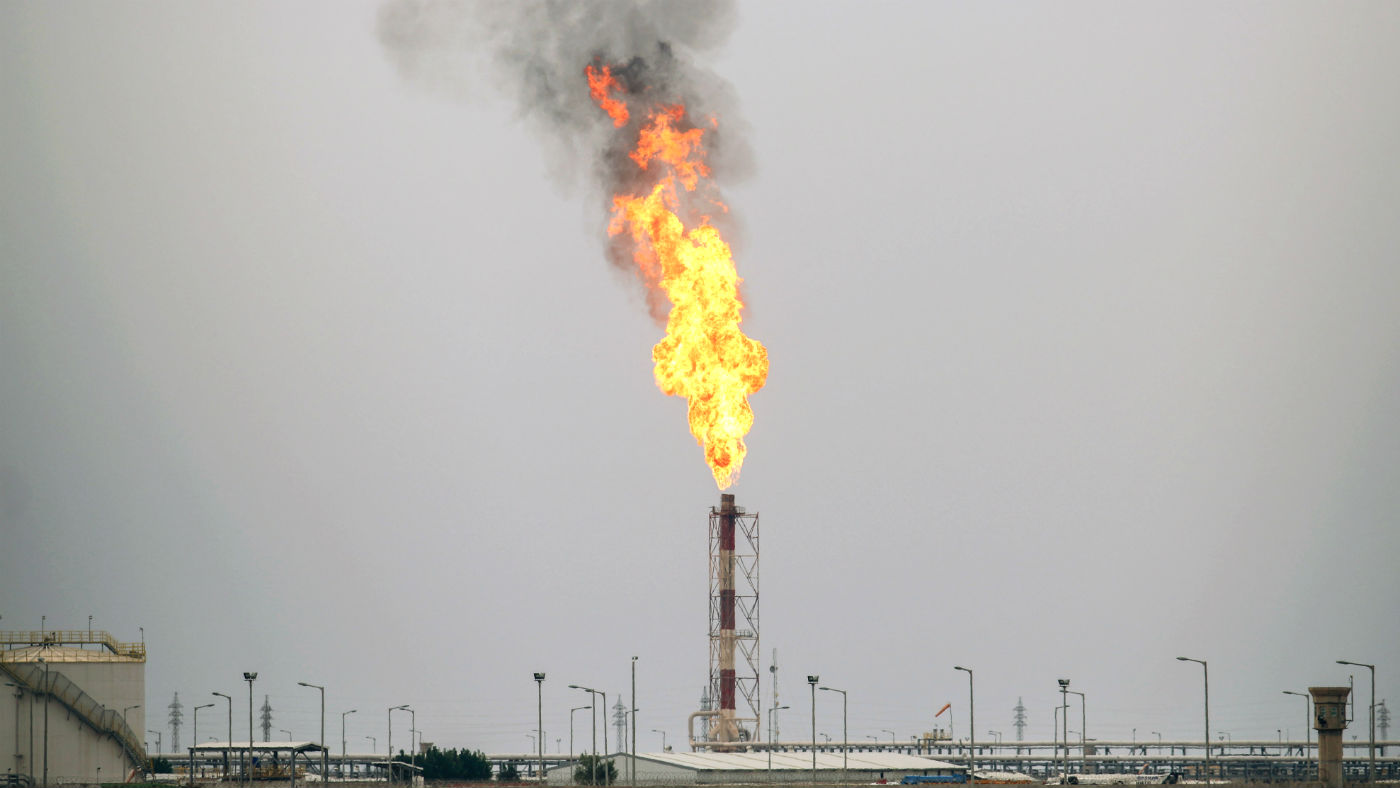 Global oil demand forecast lowered for 2020 and 2021
Global oil demand forecast lowered for 2020 and 2021Speed Read IEA report says jet fuel demand remains the major source of weakness
-
 Are US-Iran tensions flaring again?
Are US-Iran tensions flaring again?In Depth Trump threatens military action over Twitter
-
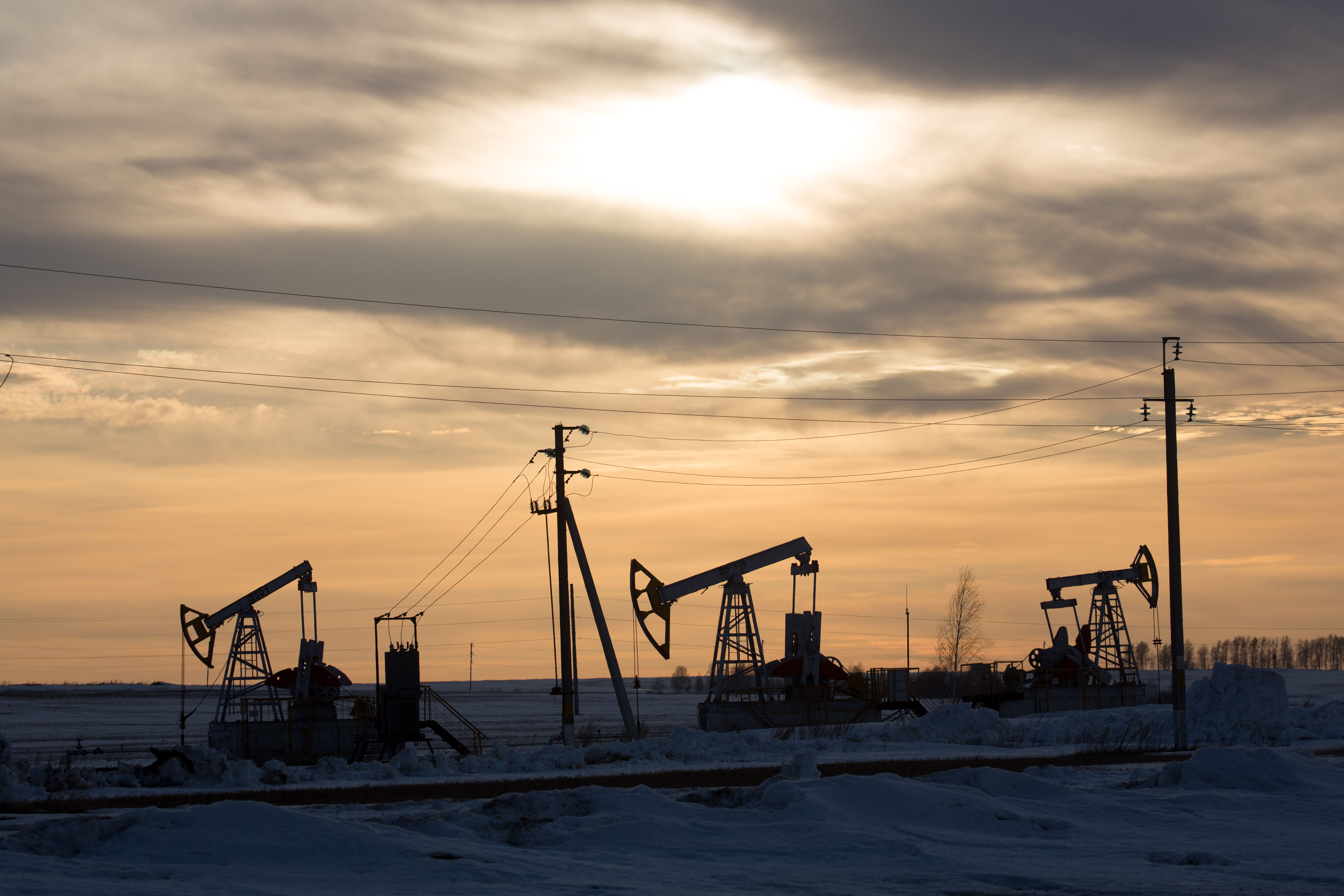 Can a deal be struck to raise oil prices?
Can a deal be struck to raise oil prices?In Depth Opec+ will convene today over video link in a bid to boost crude
-
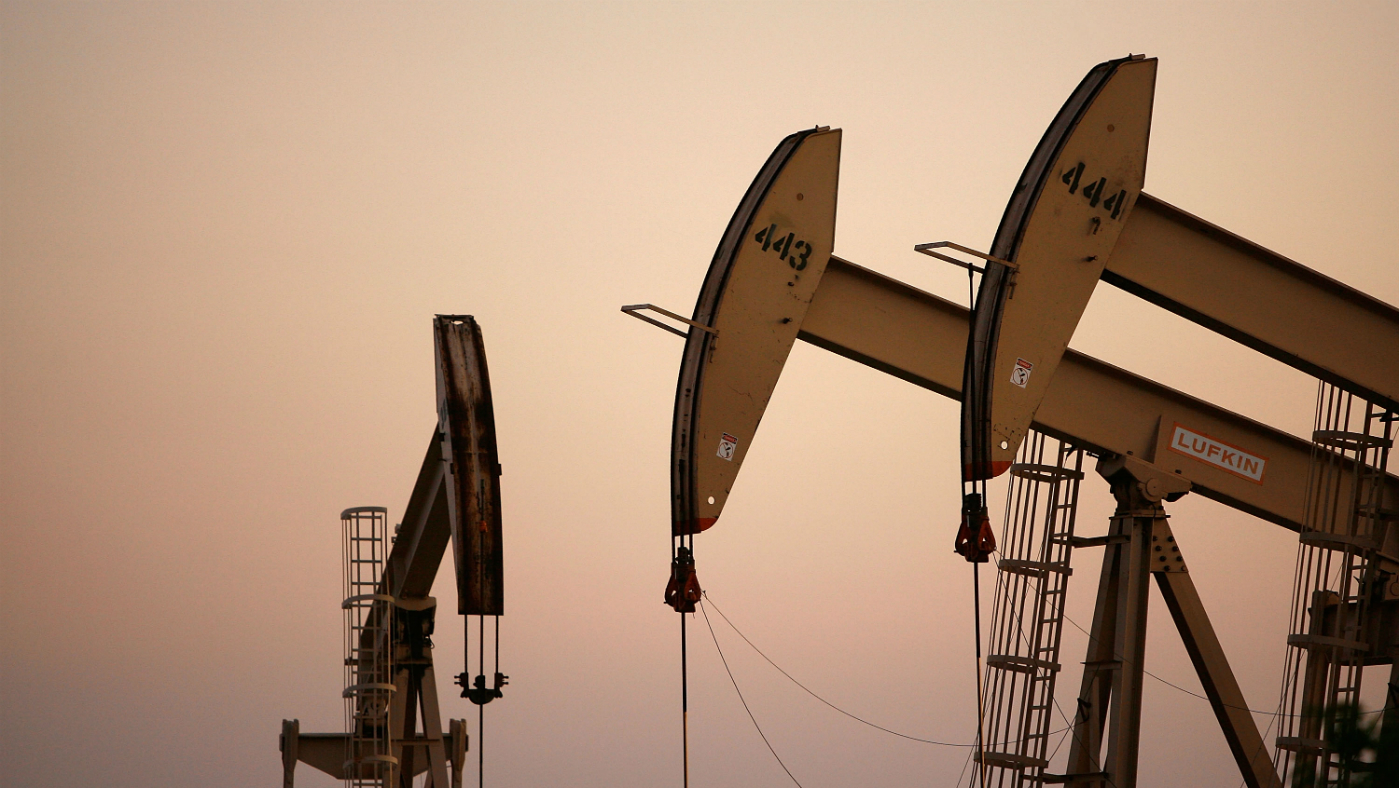 What do negative oil prices mean?
What do negative oil prices mean?In Depth Perfect storm of oversupply and storage shortages sees producers paying to get rid of US crude